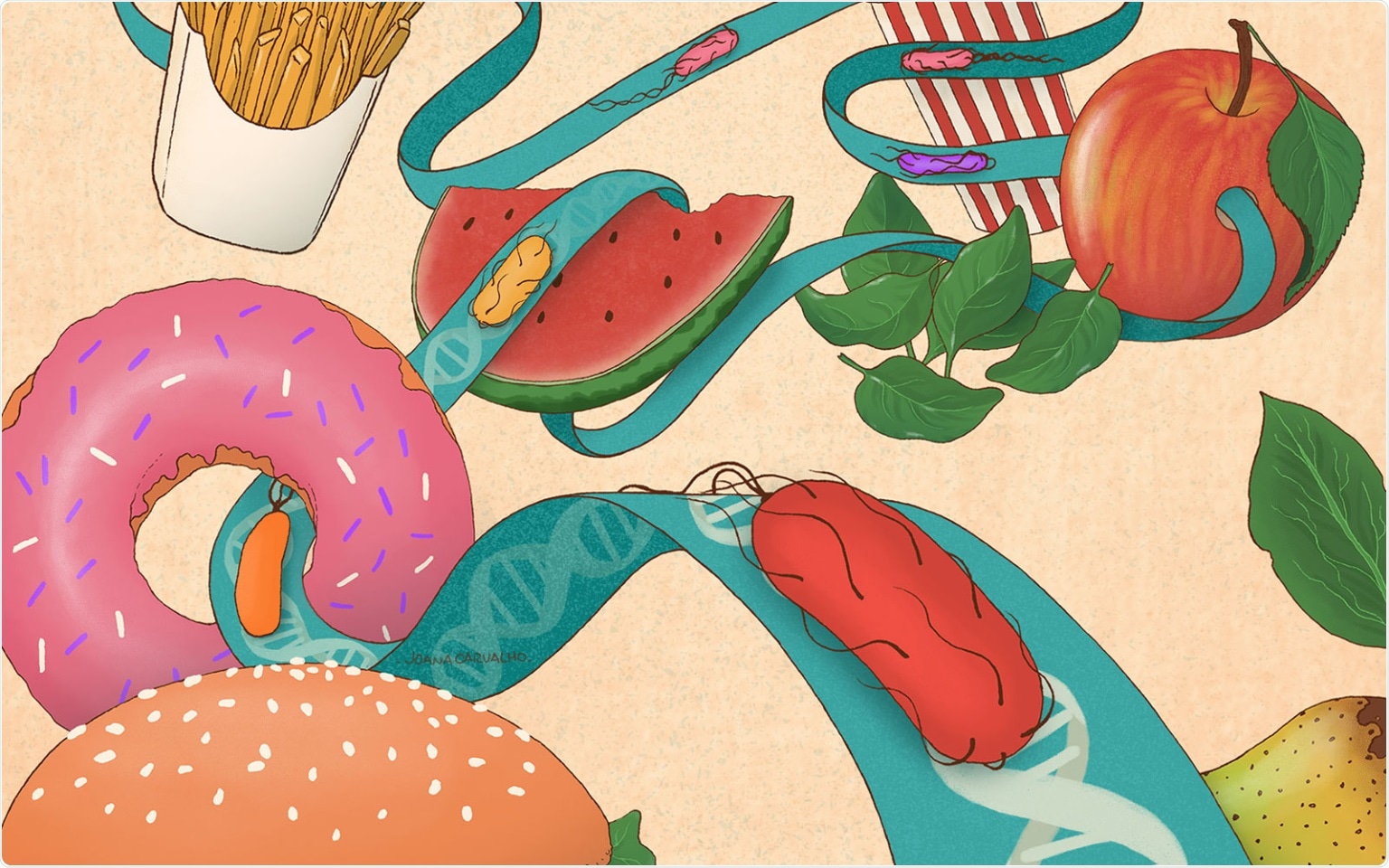A recent study found that diet can influence the evolutionary path of bacteria in the gut within host-relevant timescales. The research demonstrates how Bacteroides thetaiotaomicron (B. theta), a commonly found bacterium in the human gut, acquires adaptive mutations based on changes in diet.

Bacteria evolving due to effect of dietary changes (colors represent different bacterial phenotypes). Image Credit: © Joana C. Carvalho @ 2022.
The results of this study indicate that genetic change acquisition can explain detrimental microbiota-mediated effects of an unbalanced diet on the health of the host. The research was published in the journal Cell Host & Microbe.
The gut microbiome is composed of a variety of microbes. In addition, this community comprises hundreds of species that influence the immune system, protect humans from infections, and help to digest food. However, a wide range of factors, such as drugs, inflammatory responses, and lifestyles, can change the composition of the microbiota and decrease its diversity, often leading to disease.
B. theta and other gut bacteria require dietary polysaccharides (complex long-chain carbohydrates) from plant fibers to perform their functions. B. theta, however, can change its gene expression and metabolism so as to degrade polysaccharides from its host’s gut mucus in the context of a low-fiber diet. Increased susceptibility to infection and inflammation is caused by a decrease in the thickness of this protective layer.
A variety of pathological conditions are associated with microbiota imbalances. However, low-fiber Western-style diets have yet to be fully explored for their effects on bacterial evolution.
New research from the Instituto Gulbenkian de Ciência (IGC) suggests that, in addition to gene/metabolic regulation, adaptive mutations triggered by dietary changes may also influence and shape microbiota function. Researchers tracked the evolution of B. theta in mice that either ate a standard diet—high in microbiota-accessible carbohydrates (i.e., plant fibers) and low in fat and sugar—or a Western-style diet that is rich in fat and sugars but low in fiber.
Within a couple of weeks, the authors observed that B. theta accumulated diet-specific adaptive mutations in the murine gut. The bacteria in mice fed with a standard diet developed mutations that allowed them to degrade fiber, while those fed with a low-fiber diet acquired mutations that led them to degrade mucus, showing that these microbes are capable of evolving and adapting to distinct gut environments that are generated by dietary changes.
In addition, since these emerging mutations reflect the host’s diet, they could be used as a biomarker of dietary differences.
During the study, a group of mice had their diets changed from standard to Western on a weekly basis. These periodic shifts caused rapid variances in B. theta’s genetic and metabolic signatures, resulting in the preservation of greater genetic diversity than constant dietary treatments.
According to Tanja Dapa, IGC researcher and first author of the study, these findings suggest that periodic changes in diet, such as supplementation, may be essential to stop the fixation of specific mutations and to keep a strong genetic diversity in microbiota members.
Furthermore, these findings suggest the importance of gut bacterial evolution in defining microbiota function, with more long-term consequences than gene regulation. These details could help explain how microbiota-dependent hosts respond to diet and other perturbations, such as antibiotic use.
The consequences of an unbalanced diet can be much more permanent than previously recognized because diet affects not only the composition of the microbiota, but also leaves permanent genetic alterations in the gut microbes. Although not addressed in this study, our results indicate that these alterations can be transmitted to the next generations, thus having long-lasting consequences.”
Karina Xavier, Leader of Research Group, Instituto Gulbenkian de Ciência
Source:
Journal reference:
Dapa, T., et al. (2022) Diet leaves a genetic signature in a keystone member of the gut microbiota. Cell Host & Microbe. doi.org/10.1016/j.chom.2022.01.002.